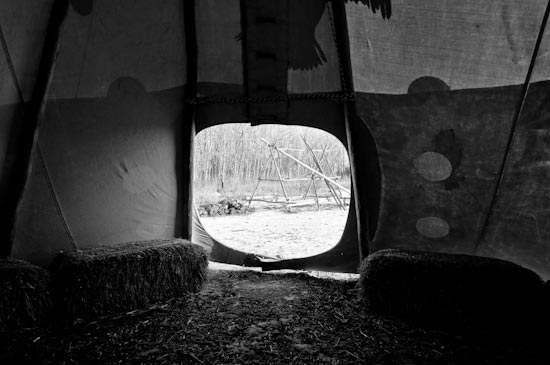How to find the way
I ran across Raptitude.com-a blog about Dave’s life experiences. Addict or not, the message he gives is a good one (in my book). Hope you like it.
reposted from Raptitude.com 2013
Being sick is one of the circumstances in which the higher functions of my mind start to go dormant. I often feel like I can’t write about anything other than being sick, or some peripherally related topic.
My whole human experience sinks to the low end of something — some kind of spectrum. As it does, I get duller and less compassionate. My mind turns inward, becomes self-absorbed. My self-consciousness grows and my consciousness of others shrinks. Mental chatter increases and takes more of my attention.
Even when I’m in the throes of its dysfunctional lower end, I am quite aware that I’m always somewhere on this spectrum, and that I have been on farther-flung parts of it (in both directions) in the past, and I’m sure I will be in the future.
I don’t know what to call this spectrum, but I do know I want to be closer to the other end of it as much as possible, which I know from experience is more likely to happen under certain circumstantial conditions: not being sick, being on top of my responsibilities, eating mostly whole foods, and taking my time whenever I drink tea or walk across parking lots or do anything else, to name a few.
There’s a problem with the words “higher”and “lower” though. They imply that one direction is definitively superior to the other, the way gold medals are superior to bronze medals. I want to avoid that, for reasons explained below, even though I obviously think one end is vastly preferable. So maybe “north and south” are slightly less-misleading words to label the two directions on this spectrum. They have nothing to do with geography, at all. I just need some poles in order to talk about it.
I know I’m being vague here. There’s a reason for that. Traditionally when people talk about subjective inner states they wade into semi-spiritual territory, where explanations start to sound hokey and assertions become unprovable, because there can be no second observer of what’s happening inside you. In an attempt to describe your current condition you might hear yourself saying something like, “Wow my energy is in disarray today,” to which your hippie friends may nod knowingly and your science-head friends may roll their eyes.
The problem is that once you model something conceptually — that is, give it a vocabulary and relate it in terms of a concrete analogy — we all lose track of that something and end up talking only about the analogy. So inner states have always been problematic to talk about, especially between people of different religions or worldviews. It’s historically been done with vague concepts and cryptic stories.
This stifles the whole conversation on this particular topic, even though the inner states of human beings really is the most important and relevant topic in the world, because these states are exactly what quality of life is made of, and quality of life the only thing every single person on this planet cares about.
We can’t ever have a proper scientific look at our inner states, because science requires corroboration — multiple angles and observers — and nobody else can get a direct peek into what your first-person experience looks and feels like. Psychology is supposed to be the study of the mind, but it’s really mostly behavior that is studied, from which conclusions are drawn about the mind. As we all know, the human mind is an utterly different thing when looked at from the inside, and you only ever get to see one of them.
Therefore understanding the workings of your inner experience is always going to be a personal hobby, if you make a hobby of it at all, and a certain inability to explain what you find is always going to be a part of that.
So I’ll try. This spectrum — I never really explained what it was — doesn’t quite equate with mood, or with happiness even. It has more to do with how reactive you are, how self-absorbed your view, how much you are in your own way, in any given moment.
This is how movement along the spectrum manifests itself, in my experience.
As you move south:
- You become more self-conscious, more easily embarrassed, and more concerned with how you are perceived by others.
- Thoughts have an increasingly strong influence on mood. You can slip into a bad mood just by having a thought about something negative, even something that happened years ago.
- You feel more inclined to take thoughts at face value. For example, if you have a thought that a problem of yours is unsolvable, you’re more likely to believe it and stop seeking solutions.
- Increasingly, you regard everything that happens in terms of how it affects your own interests, which means external events become more distressing and you become more anxious about controlling them.
- You become less inclined to see others as equals. You tend to regard them as either better than you or worse than you.
- You become more likely to wish for solutions to your problems, and less likely to believe you are capable of solving them yourself. You feel like a small part of a big world.
- You become more reactive. If you are very far this way down the spectrum, you may even react violently.
- An increasing proportion of your attention is taken by your thoughts, which leaves less attention for sense perceptions.
- Cravings for gratification and comfort increase in frequency and intensity, and appear to be the only possibilities for fulfillment. You grow increasingly less likely to feel peace or joy in ordinary moments.
As you move north:
- Personal criticisms seem less relevant to you and you’re less likely to react to them emotionally.
- It becomes easier and more appealing to relinquish control over external events, particularly over what other people do.
- You naturally put a greater proportion of your attention on the physical world around you, which leaves less attention for following your internal dialogue. Inner dialogue becomes less persistent.
- Ordinary details of the physical world become more beautiful, and feel like they somehow make more sense, and you feel less inclined to tell others this. Private experiences of beauty make up a greater proportion of your day.
- You evaluate external events more in terms of their overall good in the world — how much joy they bring or suffering they relieve — than in terms of your own interests.
- You come closer to being able to accept undesirable events in real-time. You lose interest in talking about how the situation ought to be.
- Other human beings (and, farther north, animals) appear more individualized. They seem more delicate, interesting, and worthy of care and attention. Walking among them begins to feel more like walking in a china shop.
- Self-consciousness fades. You feel an increased willingness to let things be. Farther north, you cease experiencing yourself as an opaque object moving in the world and instead feel like a transparent subject through which the world moves. You may feel like you are watching the world without being there at all.
***
I don’t know if there’s a specific quality the spectrum reflects. It’s not important. The best barometer for your current position on the spectrum is probably how much peace and ease you feel during in-between moments. By in-between moments I mean moments in which you’re not getting what you want and not getting what you don’t want, which is most moments.
We move north and south along the spectrum throughout our lives. A swing can happen within a day, especially as a reaction to the arrival of exceptionally desirable or undesirable circumstances: major setbacks, major insights, major gains or major losses. You may be in one place one day and quite another a few days later.
It tends to shift in wide arcs though, like the tension in a storyline does. You may spend an arc of a year or two quite farther north than normal for you, if you’re doing something that serves your deepest values, or something that requires exceptional levels of attention or effort from you. You might have an arc in the other direction corresponding with a rough period, like a divorce or an illness.
But generally, if you have a persistent interest in personal growth, you’ll find yourself gradually moving northward over the years.
You move north by doing the things that seem to result, for you, in the “northward” qualities above. You only get a firsthand look at your own inner states, so it’s necessarily a solo practice. Spiritual golf.
For me, what has helped most has been practicing mindfulness informally, reading, simplifying my life in terms of possessions and commitments, confronting long-running fears, and writing.
You your own best practices by trying things. If you never try anything new you never find them.
“Follow your bliss” is how Joseph Campbell put it. He always knew what he was talking about, but I have trouble with the word bliss because it’s been hijacked by Duncan Hines and other gratification-peddlers. Someone’s “bliss” may be heroin, after all. But if you get a good sense of where north is from the list above, then a personal practice of self-education can’t help but move you gradually northward.
I suppose it’s possible some people have done well at the south end, mastering the arts of controlling others, avoiding risk, finding constant gratification, and justifying their reactions. But I don’t know how happy they really are and it’s probably the harder road.
So head north. But keep in mind that the intention to move north is entirely different from pursuing the desire to reach the North Pole. At a glance, spiritual practices seem to focus on figures that have reached the Pole, so to speak — Jesus and Buddha come to mind — as well as the possibility of doing it yourself. But I think the North Pole was always meant to be a lot less important than simply heading north, and even just knowing which way it is. After all, most of the actionable passages in those doctrines describe the smaller habits that gradually move you farther north: being kind to your neighbor and washing your bowl.
***


